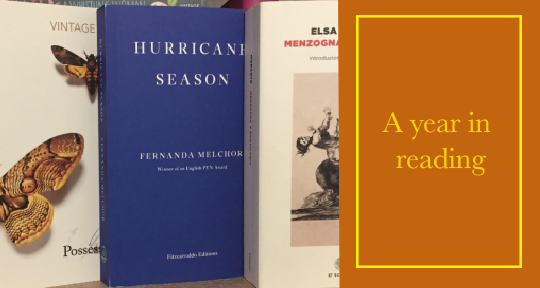As December winds to a close, we at Asymptote are once again reflecting and reminiscing on a year spent with books, those that have spoken to us, accompanied us, and in their own discreet way, carved their paths in the tracks of time alongside us. So today, in lieu of our weekly roundup, we return to our annual series with the following recap of Assistant Editor Barbara Halla’s literary year, filled with character-driven titles that range from the intimate to the epic.
I had this strange impulse, as I sat down to write my “Year in Reading”, to scrap my outline and do something different: write not about the books that have stayed with me because of how good they were, but focus instead on the books I did not like. A “year in books that made me wish I didn’t know how to read” meditation, so to speak. And that would certainly be fun. Unsurprisingly, I seem to have a lot more to say about the books that made me miserable than the ones I loved, but I fought the impulse. What good would that do, just more misery (and free publicity) to spread in the world. So, back to my outline, and the more traditional rundown of some of the books that meant a lot to me this year.
I am going to start in reverse-chronological order. Much is made of relatability in fiction, but it’s not something that I really think about, unless someone tells me that a specific book is supposed to be particularly relatable to someone of my age/gender/nationality, in which case my brain takes this as a challenge to actively dislike it. While reviewers certainly mentioned its style (Joycean!) and its girth (a brick!), I don’t remember anyone specifically telling me that I should read Ducks, Newburyport because I would find myself in its pages. Lucy Ellmann’s opus, where an American housewife from Ohio spends her day making pies and thinking about everything from the challenges of motherhood to the climate crisis, is certainly a book of our time. But I didn’t expect that my overwhelming reaction to it would be a sense of “if someone could scan my brain this is exactly what I’d imagine it to look like!” As for relatable, this is the only book I have read in my life that shows some pity for tortoise-owners like me, and the fact that our care and attention are treated with complete indifference by the subject of our affection. There is a lesson in there somewhere about love and letting go. READ MORE…


